The Last Night of the Proms: Jingoism or patriotism?
Clearly, and perhaps sadly, overt patriotism and the arts in this country make strange and uncomfortable bedfellows, writes David Lister

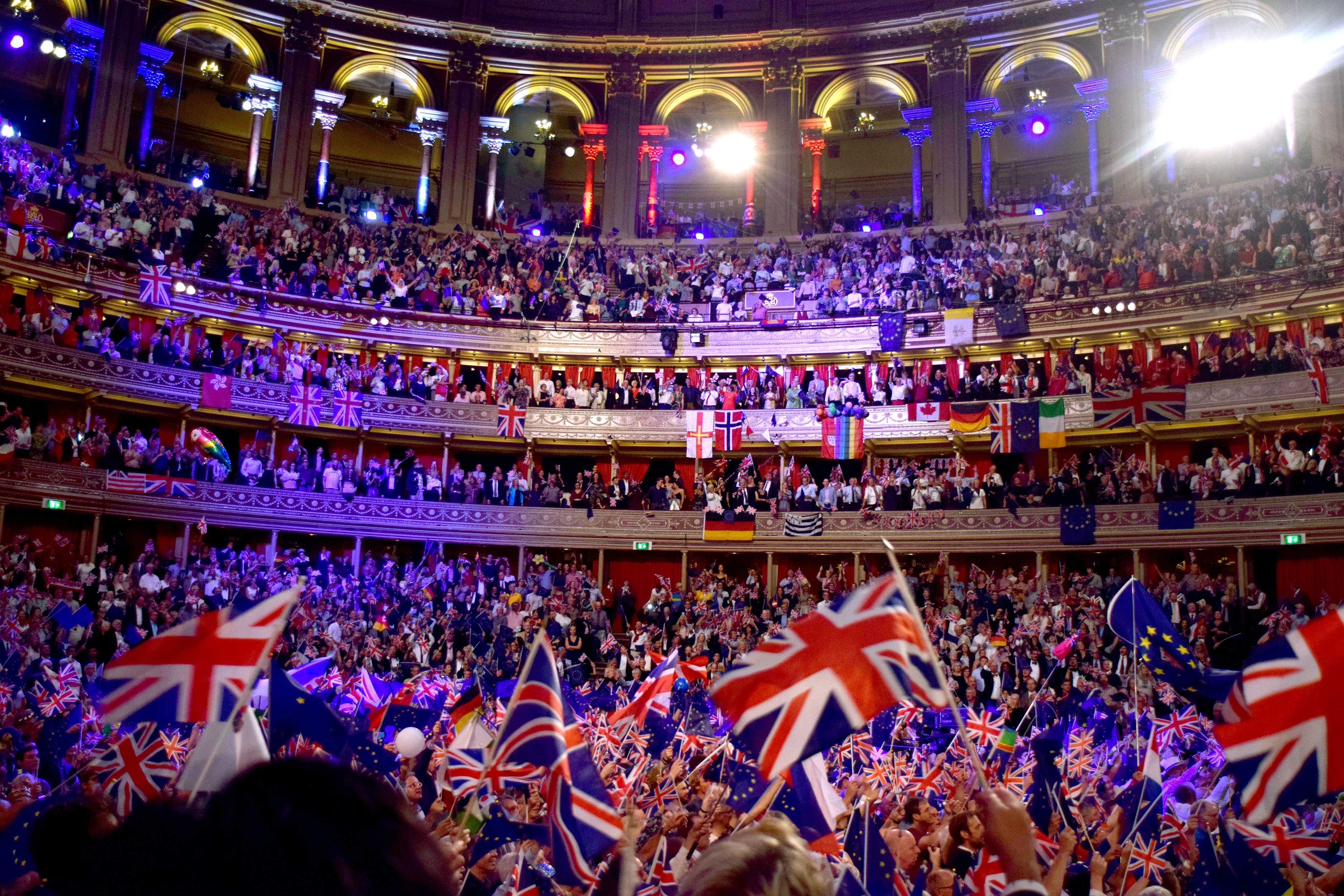
The Last Night of the Proms has long been celebrated as a night not just of great music, but of communal excitement, “Land of Hope and Glory”, flag-waving and unabashed patriotism. And all of it on primetime television. It is only in relatively recent times that doubt has been cast, with the word “jingoism” replacing “patriotism”, as skeptical accusations began to surface, often from celebrated and highly respected names. Even before the celebration begins on Saturday, one of the most esteemed conductors in the world, Britain’s Sir Simon Rattle, cast a dampener on proceedings.
“I never conducted the last night,” he told Radio Times. “I always avoided it a bit. I’ve been uneasy about some of the jingoistic elements, ever since the Falklands in 1982.”
Yet, even Rattle lamented that he was “sad that enemies of the BBC should want to use The Last Night of the Proms as something to bash the BBC with,” adding: “I think the time will come where we can return to something and argue sanely.” He did acknowledge the positives of the Last Night. He went on to say that it was “a unique occasion. There are not many pieces of music that we have in our national conscience to actually sing together… I’m very torn, to be honest… I think everybody simply has to have their own reaction.”
Last year the BBC announced that only orchestral versions of the two songs would be performed. And BBC Music Magazine columnist, and arts commentator for The Times, Richard Morrison, called for “Rule Britannia” and “Land of Hope and Glory” to be scrapped for being “crudely jingoistic.” He wrote in the BBC Music Magazine that it would be “insensitive, bordering on incendiary” to sing the songs in the wake of Black Lives Matter protests. He urged the programme directors to replace the “toe-curling embarrassing anachronistic farrago of nationalistic songs” with a “more reflective” line-up so as not to “provoke offence or ridicule”.
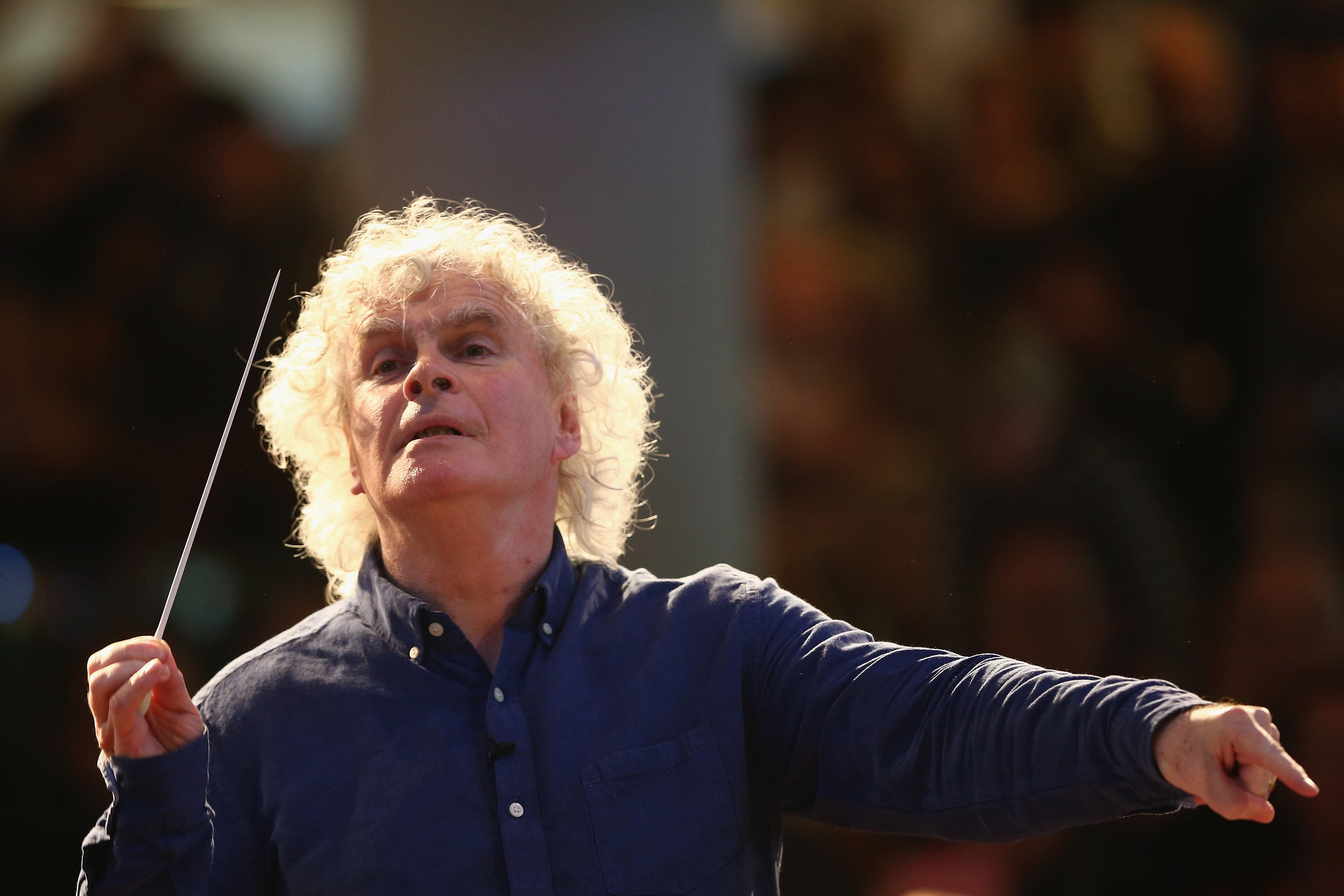
With this, he echoed many in the arts establishment. It seemed clear that the BBC, in the wake of BLM, was uneasy about the lusty singing of songs associated with imperialism. A number of papers opposed this stance with The Sun notably headlining its piece “Land of Woke and Glory.” And then prime minister, Boris Johnson, had his say. He told reporters: “I think it’s time we stopped our cringing embarrassment about our history, about our traditions, and about our culture, and we stopped this general bout of self-recrimination and wetness.” The BBC duly performed a U-turn and permitted a small group of singers to sing the lyrics.
It wasn’t always like this. It wasn’t always controversial. In fact, until relatively recently it was not just uncontroversial, it was downright, unabashedly joyful. The history of the Last Night actually goes way beyond the Falklands War that so affected Sir Simon’s view of proceedings. The Proms themselves began in 1895, long before the BBC got involved or even existed. Sir Henry Wood, the conductor, was one of the founders and his bust is placed in front of the organ at the Royal Albert Hall for the whole Proms season – adorned with a laurel chaplet on the Last Night. Promenaders often make some sort of visual joke, such as wiping an imaginary bead of sweat off his brow. There is, it has to be admitted, a questionable Oxbridge humour to the Promenaders and their shouts and their interventions.
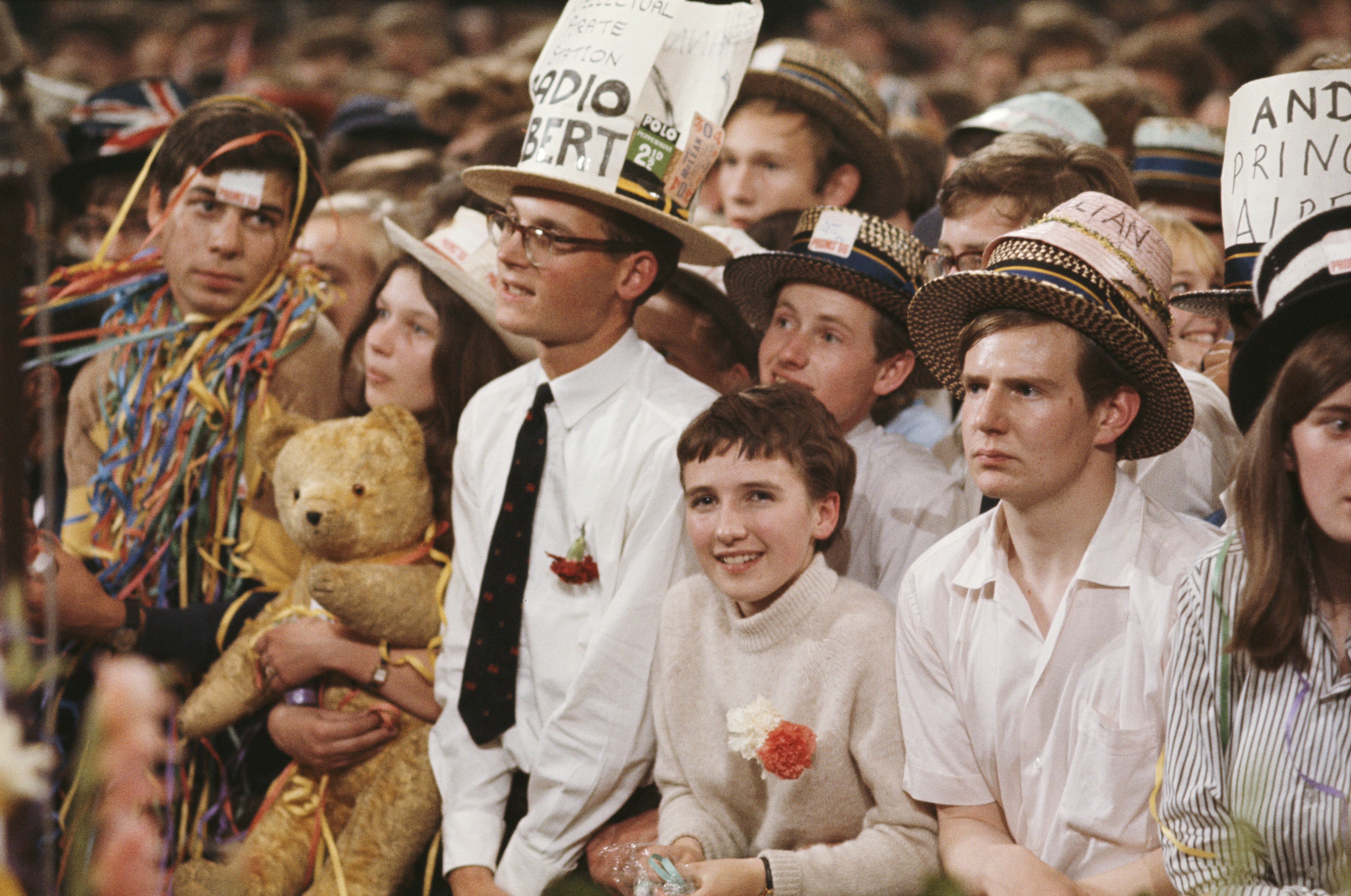
The BBC took over running the concerts in 1927, and the concerts were staged at the Royal Albert Hall from 1941 – and as a further, and alarming, historical note, it wasn’t until 2013 that Marin Alsop became the first woman to conduct the Last Night. Crucially, the Proms have the unique selling point of allowing 1000 Promenaders to stand in the arena in front of the orchestra – at genuinely cheap prices – resulting in a repartee developing between prommers and conductor, most notably with the long-serving conductor Sir Malcolm Sargent, known as “Flash Harry” because of his dapper appearance, complete with evening dress and carnation.
The Last Night programme too has a different feel from the rest of the season, with the second half full of patriotic pieces
The Proms have always tended to pass peacefully, with the only controversies being minor ones – such as when Proms head John Drummond hit out at “extraneous noise” by Promenaders, and they would answer him in unison in the interval; or when another BBC bigwig would show his craving for modernity by encouraging audiences to talk or clap between movements of a symphony. Rather more seriously, in 2011, a performance by the Israel Philharmonic Orchestra was disrupted by Palestinian protesters. This was the only occasion when the BBC actually took a Prom concert off the air.
The Proms, and particularly the Last Night, had begun to be a focus of those wanting to make political capital out of something that had rarely been political – classical music. In 2008, Margaret Hodge, a Labour minister at the Department for Culture, Media and Sport, said that “the Proms was one of several big cultural events that many people did not feel comfortable attending”, and advocated an increase in multicultural works in an effort to broaden the audience. The then prime minister, Gordon Brown, distanced himself from her remarks.
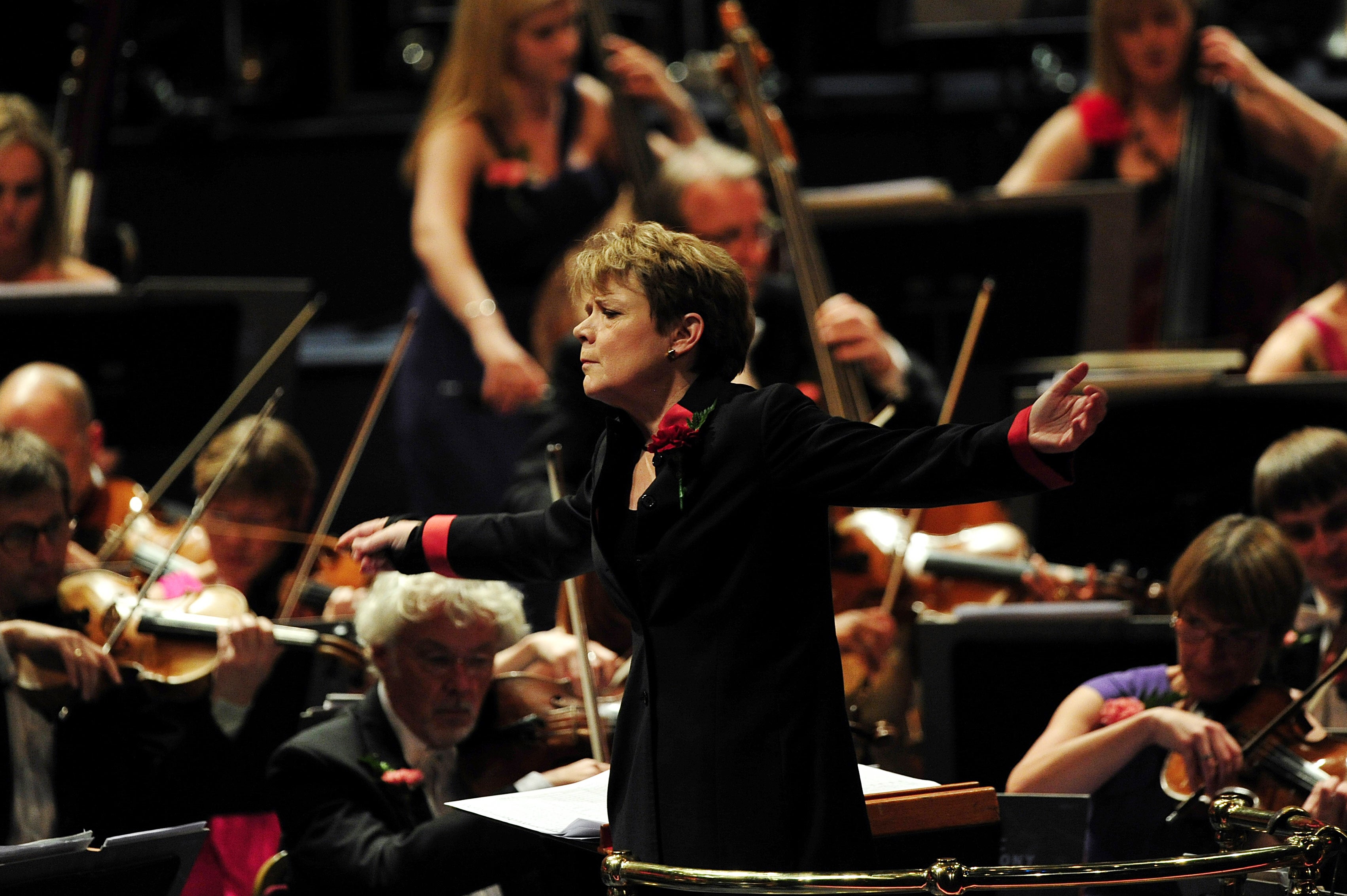
But it was the Last Night on which the enemies of elitism, and more pertinently those uncomfortable with overt displays of patriotism, had begun to focus their ire. The Last Night has a different feel from the rest of the Proms. Members of the audience wave flags, hold balloons and let off poppers, while some wear patriotic T-shirts, and some even come in fancy dress. Significantly, since 2016, there has been something of a contest between audience members, with some waving union flags and others waving the EU flag.
The Last Night programme also has a different feel from the rest of the season, with the second half full of patriotic pieces. Elgar’s “Pomp and Circumstance March No 1” is featured, a part of which, “Land of Hope and Glory”, is often sung twice, with the audience singing along. Other works include Henry Wood’s “Fantasia on British Sea Songs”, “Rule Britannia” and “Jerusalem”, and an arrangement of the national anthem. It would be hard to devise a repertoire more suited to an outbreak of culture wars.
In 1990, Mark Elder, distinguished conductor of the English National Opera and more recently the Halle Orchestra in Manchester, was due to conduct the Last Night. But earlier he had spoken out against its jingoism in the context of the impending Gulf war. The BBC, more robust then than now in its defence of Last Night tradition, summarily dismissed him.
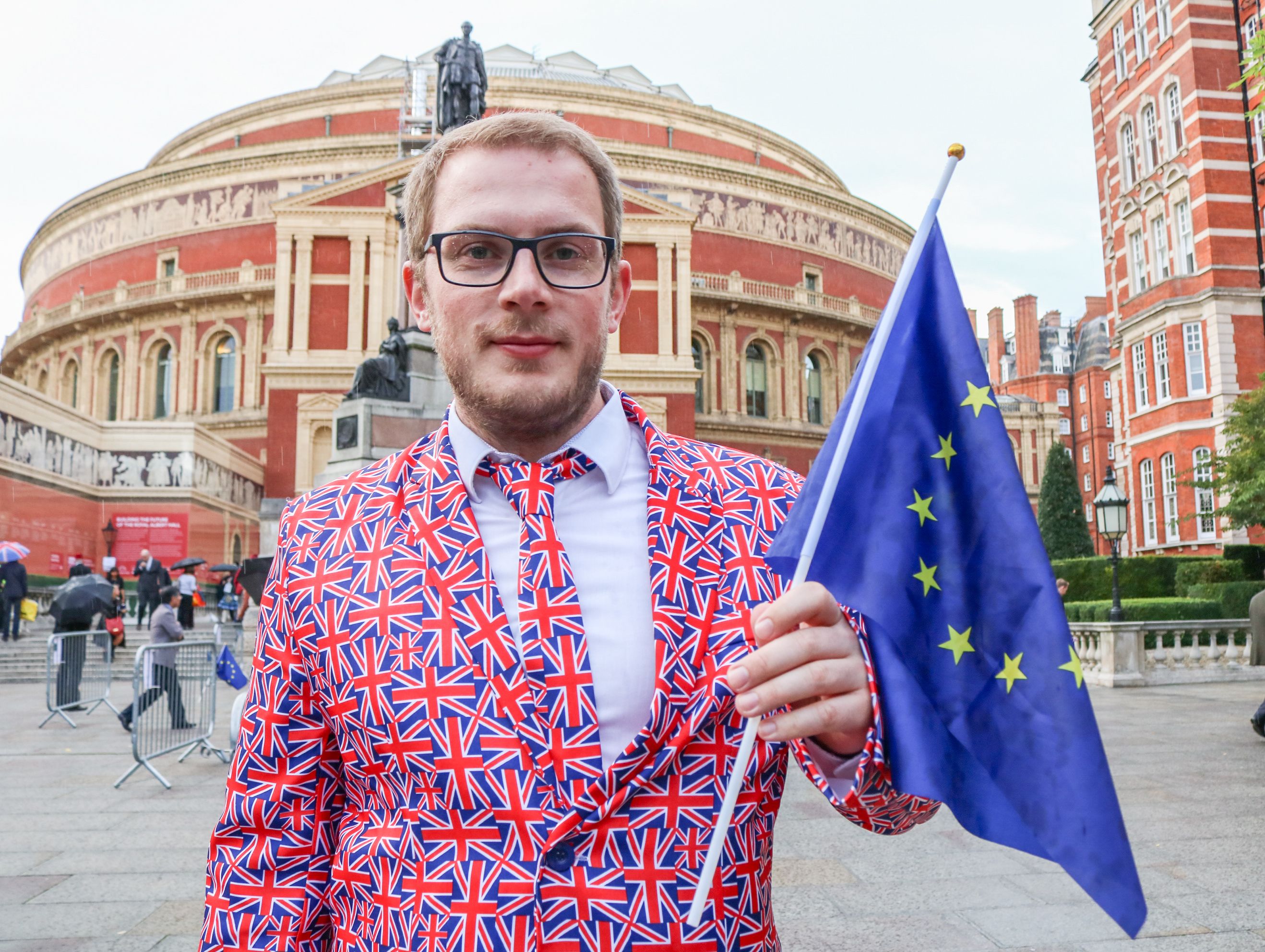
In the early 2000s, Leonard Slatkin, the first American conductor to lead the Last Night, expressed his disquiet about the patriotism of the occasion, and rather than play “Rule Britannia” separately, he incorporated it into the sea songs.
Both the Proms and its rebellious Last Night conductors have the ability to forgive. Sir Mark Elder, after his 1990 rebellion, did return to conduct the occasion in 2006, and was in a more jovial mood. He used the traditional conductor’s speech to lament not abuses of patriotism, or downright jingoism, but the more parochial matter for the music world: that of airline baggage restrictions. Laptops were allowed in the cabin, but some musical instruments were not. Elder joked: “It seems to me that next year we should all look forward to ‘Concerto for Laptop and Orchestra.’”
One does not need to distance oneself from the patriotic fervour. Indeed, the patriotism has been publicly embraced in quarters that one would not necessarily expect
Ah, the conductor’s traditional Last Night joke. Elder’s was not bad, but more usually one is tempted to say: “Don’t give up the day job.”
But it is the overt patriotism, rather than the conductor’s sense of humour, that still divides people. Even the late John Drummond, who ran the Proms for 10 years, said his experience of the evening “moved from tolerant enjoyment to almost physical revulsion”.
Clearly, and perhaps sadly, overt patriotism and the arts in this country make strange and uncomfortable bedfellows, and that discomfort became even more apparent after the Brexit vote. Before the Last Night in 2016, another former Proms controller, Sir Nicholas Kenyon, wrote of “a sense of foreboding that this most British of occasions might be hijacked to celebrate the triumph of Little England”, arguing that that would be to “radically misread” its history as an internationalist event, and ignore British music’s immense debt to Europe.”
Indeed, long before that, in 1996, Kenyon had decided “to stop the Last Night being accused of being too ‘little England’” by instigating separate open-air concerts in Scotland, Wales and Northern Ireland. Wood’s sea-song fantasia was then adapted to include “The Skye Boat Song”, “Ar Hyd y Nos” (“All Through the Night”), and the “Londonderry Air”.

But perhaps there is a middle way: a way to avoid this self-flagellation by the arts establishment, Proms conductors and Proms controllers. And that is to view the celebrations as more of an ironic display. The author, journalist and long-time Proms attender Ian Jack does just that. He asks whether the sentiment of the boisterous singing is passion or irony. Jack wrote in The Guardian: “The Last Night of the Proms has a similar spirit to 1066 and All That – something is being gently mocked: not real British history, with all its achievement, conquest and villainy, but a Victorian music hall version that includes barefoot seamen, plump contraltos, and no mention of slaves other than those that Britons shall never, never, never be.”
It is not the only irony. The historian David Cannadine has written that a paradox of the Last Night is that it was created as a “British tradition” between 1947 and Sargent’s death in 1967, when “the leitmotif … was not so much ‘hope and glory as decline and fall’.”
That is correct. One does not need to distance oneself from the patriotic fervour. Indeed, the patriotism has been publicly embraced in quarters that one would not necessarily expect. During the row last year, and in response to Johnson’s comments, the Labour Party put out a statement saying: “The pomp and pageantry of the Last Night of the Proms is a staple of the British summer. The running order is a matter for the organisers and the BBC, but enjoying patriotic songs does not – and should not – present a barrier to examining our past and learning lessons from it.”
As I say, we should embrace that sense of irony. Think of it as Victorian music hall, rather like that old TV programme The Good Old Days, which recreated an Edwardian music hall, and had audience members dressed up, waving flags and singing their hearts out in the secure knowledge that it was just a bit of fun, and – more pertinently – just an act, delivered with fervour and with a genuine love of one’s country – but also with a knowing wink.




Join our commenting forum
Join thought-provoking conversations, follow other Independent readers and see their replies
11Comments